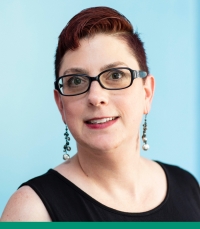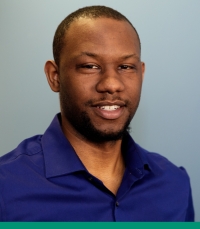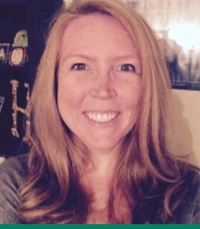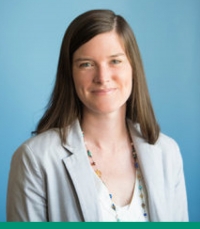Our Team


Mary Ellsberg, PhD (she/her)
Executive Director
mellsberg gwu [dot] edu
gwu [dot] edu
Dr. Mary Ellsberg is the Executive Director and Founding Director of the Global Women's Institute at the George Washington University. Dr. Ellsberg has more than 30 years of experience in international research and programs on gender and development. Before joining the university in August 2012, Dr. Ellsberg served as Vice President for Research and Programs at the International Center for Research on Women. Dr. Ellsberg’s deep connection to global gender issues stems not only from her academic work, but also from living in Nicaragua for nearly 20 years, leading public health and women’s rights advocacy. She was a member of the core research team of the World Health Organization’s Multi-Country Study on Domestic Violence and Women’s Health, and she has authored more than 40 books and articles on violence against women and girls. Dr. Ellsberg earned a doctorate in epidemiology and public health from Umea University in Sweden and a bachelor's degree in Latin American studies from Yale University.
Marianne Makar (she/her)
Assistant Director of Research Administration
mmakar gwu [dot] edu (mmakar[at]gwu[dot]edu)
gwu [dot] edu (mmakar[at]gwu[dot]edu)
Marianne Makar is the Assistant Director of Research Administration at the Global Women’s Institute at the George Washington University. She brings to GWI extensive grants, finance and project management experience from more than ten years at The Brookings Institution. She has an educational background in political science and peace studies, including master’s degrees from Syracuse University and the University of Bradford.
Justin Brown (he/him)
Research Program Associate
jbrown6 gwu [dot] edu (jbrown6[at]gwu[dot]edu)
gwu [dot] edu (jbrown6[at]gwu[dot]edu)
Justin Brown is a Research Program Assistant with the Global Women’s Institute at the George Washington University. Before joining the GWI team, he worked in the nonprofit space. For two years, he served as an Americorps volunteer with City Year in Washington, D.C. in some of the city’s most under-resourced communities, and another two years as alumni board member. He then spent five years managing logistics, data and operations for Live It Learn It, an education-focused nonprofit.
Justin brings a love of reading and a solution-oriented approach with him to GWI to support moving the mission forward of ending violence against women.
Flávia Dutra (she/her)

Research Assistant
flaviadutra gwmail [dot] gwu [dot] edu (flaviadutra[at]gwu[dot]edu)
gwmail [dot] gwu [dot] edu (flaviadutra[at]gwu[dot]edu)
Flavia Dutra is a Research Assistant with the Global Women’s Institute at the George Washington University, primarily supporting the What Works to Prevent Violence – Impact at Scale Programme. Before joining the Global Women’s Institute, Flavia worked with George Washington University professors to conduct research and editing for publications. After completing her Bachelor’s degree, she transitioned to a full-time Research Assistant to a Women’s Gender and Sexuality Studies professor, whom she supported in the launch of a book on reproductive rights. She is passionate about policy research on reproductive rights and women’s health care. Flavia is fluent in Portuguese.
Flavia graduated summa cum laude from George Washington University in 2022 with a Bachelor of Arts degree in Political Science and a minor in Psychology.
Heather Holmes, MBA
Research Institute Administrator
hholmes gwu [dot] edu (hholmes[at]gwu[dot]edu)
gwu [dot] edu (hholmes[at]gwu[dot]edu)
Heather Holmes is a Research Institute Administrator with the Global Women’s Institute at The George Washington University. With over 20 years of professional experience, she brings a variety of expertise to GWI including budget development and long-range planning, finance and operations, personnel management, process/systems improvement strategies, and pre/post award administration. Heather’s interest in combatting violence against women began in college when she volunteered as a sexual assault peer educator and expanded years later when she volunteered as a court appointed special advocate in the District of Columbia. She is passionate about working to end gender-based violence and is particularly interested in the areas of human trafficking, child marriage and climate change.
When not working, Heather volunteers with several organizations around the DMV, including those focused on food insecurity, homelessness, at-risk youth and animal welfare. She holds a Master’s degree in Business Administration from Strayer University and Bachelor of Arts degrees in Political Science and French from Mary Washington College.
Andrea Koris, MSc (she/her)

Senior Research Associate
andrea [dot] koris gwu [dot] edu (andrea[dot]koris[at]gwu[dot]edu)
gwu [dot] edu (andrea[dot]koris[at]gwu[dot]edu)
Andrea Koris is a Senior Research Associate with the Global Women's Institute at George Washington University. As a practitioner, she brings over a decade of experience supporting community-based and transnational initiatives responding to gender-based violence and supporting the health and bodily integrity of women and girls across the U.S. border-Mexico border, Central America and East Africa. As a mixed methods researcher she is specialized in trauma-informed, participatory qualitative methods and facilitating participatory data analysis. She is a published author on various topics including novel methods of gender-based violence prevention; adolescent sexual and reproductive health; and decolonizing aid and donor governance.
Andrea holds a MSc in Global Health from Duke University. In addition to focusing on GBV research she works as a full spectrum doula, and is interested in the impacts of climate change on preventing sexual exploitation and abuse in humanitarian aid, on GBV risk mitigation and response, and on maternal, sexual, and reproductive health access writ large.
Maureen Murphy, MPH, DrPH (she/her)
Research Scientist
maureenmurphy gwu [dot] edu (maureenmurphy[at]gwu[dot]edu)
gwu [dot] edu (maureenmurphy[at]gwu[dot]edu)
Dr. Maureen Murphy is a Research Scientist with the Global Women’s Institute at the George Washington University. Previously, she worked with numerous international non-governmental organizations, including in South Sudan with the American Refugee Committee and in Sierra Leone with GOAL Ireland. Prior to this, she worked with the Child Protection in Crisis Network based at Columbia University to coordinate locally driven child protection and gender based violence research projects in Africa and Asia.
Maureen holds a Master’s of Public Health from Columbia University and has a professional interest in improving monitoring and evaluation in complex emergencies, particularly in the realm of gender-based violence and reproductive health programming. She is a published author on a variety of gender based violence and reproductive health topics. She has a Doctor of Public Health degree from George Washington University's Department of Global Health.
Alina Potts, MPH (she/her)

Research Scientist
apotts gwu [dot] edu (apotts[at]gwu[dot]edu)
gwu [dot] edu (apotts[at]gwu[dot]edu)
Alina Potts is a Research Scientist with the Global Women’s Institute at the George Washington University, where she aims to center women and girls in asking and answering questions around how to better address gender-based violence (GBV) in humanitarian settings. Previously, Alina coordinated violence prevention research at UNICEF and explored intersections between GBV and child protection in emergencies. As a practitioner, Alina led GBV programming for the International Rescue Committee in a number of humanitarian responses over the last 10+ years—including Bangladesh (Cox’s Bazar), Lebanon, Syria, DR Congo, Kenya (Dadaab) and Sudan (Darfur). Her experience in forced migration extends to refugee resettlement in the US; asylum advocacy in Europe; and addressing grave violations in conflict settings.
Alina holds a BA in Anthropology and International Development from Boston University and a Master's of Public Health in Forced Migration and Health from Columbia University. She welcomes opportunities for shared learning, and teaches graduate classes on GBV in complex emergencies.
Chelsea Ullman, PhD (she/her)

Research Scientist
chelseau gwu [dot] edu (chelseau[at]gwu[dot]edu)
gwu [dot] edu (chelseau[at]gwu[dot]edu)
Dr. Chelsea Ullman is a Research Scientist with the Global Women’s Institute at the George Washington University, where she plays a primary leadership role in the What Works to Prevent Violence Against Women and Girls Research Consortium. She joined GWI at its founding while serving as a Presidential Fellow at the George Washington University (a selective program that offers high-achieving students the opportunity for professional development while completing a Masters degree).
Chelsea has contributed to the strategic growth of GWI by developing key policy initiatives, communications and outreach programs, and participating in research on violence against women and girls globally. Chelsea holds a PhD in Public Policy and Public Administration, focused in Gender and Social Policy, from the George Washington University. Her doctoral work explored theories of justice for survivors of campus sexual assault in the United States, with a goal of improved policymaking on the issue. Chelsea is committed to amplifying the voices of survivors of violence in research and policy.
Saini Das, MA, PhD (she/her)

Research Scientist
saini [dot] das gwu [dot] edu (saini[dot]das[at]gwu[dot]edu)
gwu [dot] edu (saini[dot]das[at]gwu[dot]edu)
Dr. Saini Das is a Research Scientist with the Global Women’s Institute at the George Washington University. She supports the data management processes for the What Works to Prevent Violence Impact at Scale Programme. She brings expertise in survey and research design, statistical analysis and modeling. Prior to joining the What Works team, she was a Postdoctoral Research Scientist at the George Washington University Milken Institute of Public Health, where she supported gender-synchronized randomized control trials in East Africa. Saini has worked in Malawi and India and has published research on gender and adolescence.
Saini has a PhD in Economics from the University of Oklahoma. She has a keen interest in understanding the various socio-economic pathways that lead to entrenched gender norms and gender-based violence and evaluating programs that break the cycle of violence through rigorously designed impact evaluations. Her other research interests lie in the areas of reproductive health and adolescent empowerment.
Gabriella Nassif, PhD (she/her)

Senior Research Associate
gabriella [dot] nassif gwu [dot] edu (gabriella[dot]nassif[at]gwu[dot]edu)
gwu [dot] edu (gabriella[dot]nassif[at]gwu[dot]edu)
Gabriella Nassif is Senior Research Associate with the Global Women’s Institute at the George Washington University. She first joined GWI in 2023 as part of Putting Survivors at the Center, a research project that piloted innovative strategies to build the capacity of humanitarian organizations without experience in the fields of gender and gender-based violence (GBV), to support survivors following a spontaneous disclosure of GBV.
Prior to joining GWI, Gabriella worked as a research consultant for various international and local nongovernmental organizations and agencies in the Middle East and North Africa (MENA) region on issues related to gender, women’s economic empowerment and labor force participation, and women’s labor migration. Gabriella holds a PhD in Global Gender & Sexuality Studies from the University at Buffalo SUNY. Her doctoral work used the framework of social reproduction to explore the racialization and feminization of care workers in Lebanon, with a focus on women migrant domestic workers.
Michelle Jones Pérez (she/her)

Research Project Manager
michelle [dot] jonesperez email [dot] gwu [dot] edu (michelle[dot]jonesperez[at]gwu[dot]edu)
email [dot] gwu [dot] edu (michelle[dot]jonesperez[at]gwu[dot]edu)
Michelle Jones Pérez is the research project manager for the What Works 2 project at the Global Women's Institute. She is a dedicated Costa Rican scholar, activist, and project coordinator. She holds a Master's in Geography and a Bachelor's in Anthropology from the University of Costa Rica. Since 2013, Michelle has been sharing her expertise as a university professor at various institutions in Costa Rica. She is also the founder of Arrecife, a grassroots human rights organization committed to research, data analysis, and education.
Her engagement extends beyond her academic roles. She is actively involved in numerous organizations in Costa Rica and regional networks across Latin America and the Caribbean. Her passion lies in leveraging technology and data to empower marginalized communities.
Michelle bridges the gap between technology and social sciences with a background in GIS, statistical analysis, and project management. Her extensive experience includes managing research projects, coordinating international initiatives, and conducting consultancy work for regional and global organizations. Notably, she has contributed to research on a range of critical issues, from human rights within indigenous communities to LGBTQ+ rights and gender equality. Her commitment to social justice is further evident in her active participation in social movements, conferences, and advocacy efforts.





